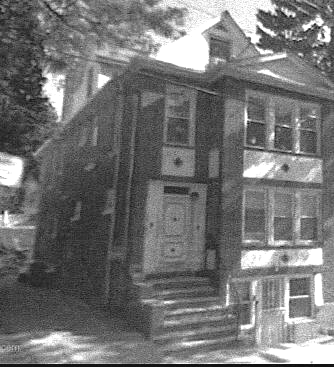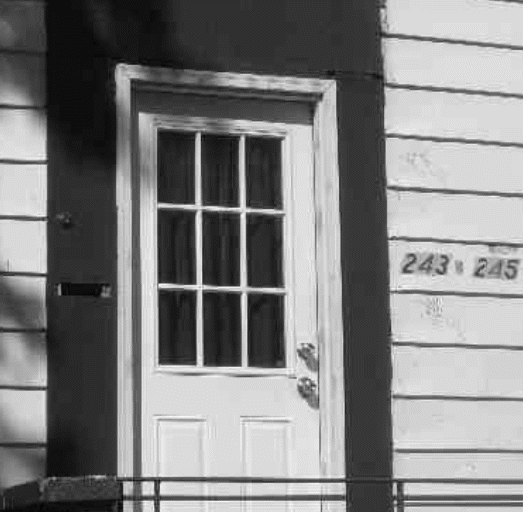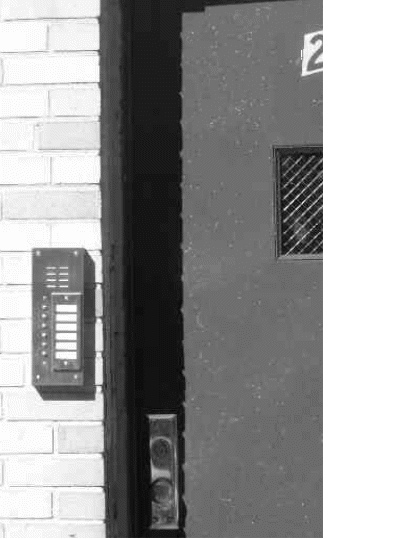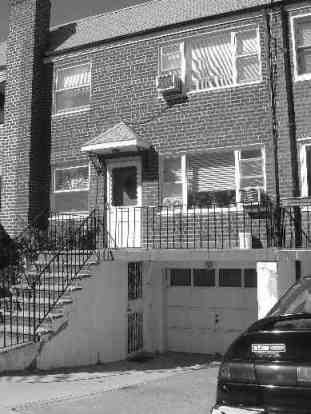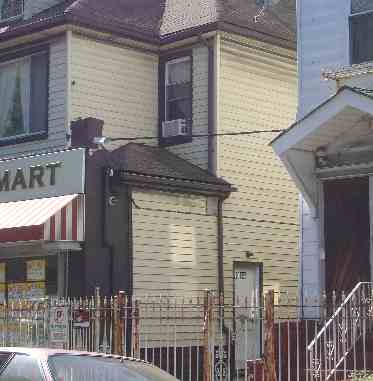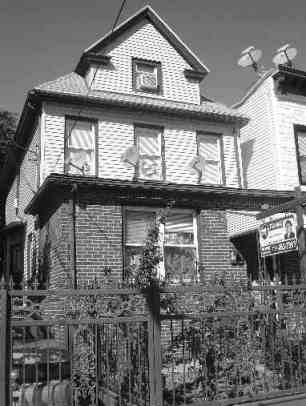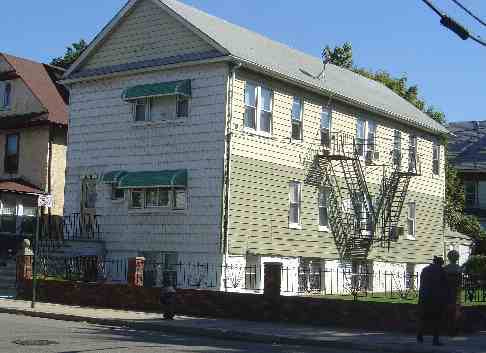Final Procedures for hard-to-find units in small multi-unit buildings
AC Final Procedures_Hard to Find Units in Small Multiunit Buildings.doc
2010 Census
Final Procedures for hard-to-find units in small multi-unit buildings
OMB: 0607-0919
D-461.1 Job-Aid: Hard-to-Find Units In Small Multi-Unit Buildings
_____________________________________________________________________________________________
Job Aid: Hard-to-Find Units In Small Multi-Unit Buildings |
||
Topic 1: Overview |
||
Introduction |
|
To do an accurate 2010 Census we need to include every place where people could or do live. You will easily find most of the housing units in your assignment area. But some people live in housing units that are hard to see as you canvass your area. We refer to these units as hard-to-find units.
Some of these hard-to-find housing units are in small multi-unit buildings, like private homes or small buildings expanded into more housing units. The term “small multi-unit building” describes a building containing between 2 and 19 housing units. They come in all shapes and sizes, ranging from what looks like a one-family private home to a building with several levels.
This job-aid will help you locate hard-to-find units that may be missing from our Address List in small multi-unit buildings. This job-aid is in addition to your regular Address Canvassing procedures and only applies to small multi-unit buildings.
These units might not receive a 2010 Census questionnaire unless you add them to the Address List. Here are some examples:
In many cases you will find these units, add them to the Address List, and move on to your next address. However, in some cases you may have to be persuasive and do a little detective work to account for the hard-to-find housing units.
If you see evidence that additional units exist, keep them on the Address List or add them if they are not already on the Address List, even if you cannot find someone willing to confirm them.
Do not delete any units from the Address List. Explain the situation completely on an INFO-COMM. Do not take any other action on these units. A supervisor will make the final decision whether to delete any units. This only applies to small multi-unit buildings. You may delete nonexistent or duplicate units in other situations, as described in your regular Address Canvassing procedures.
If you are unsure how to handle a situation, explain the situation fully on an INFO-COMM before taking any action. An office supervisor will decide how to handle the situation.
|
Why Are We Concerned About Hard-To-Find Units?
|
|
The 2010 Census could miss some housing units in small multi-unit buildings unless you account for them on the Address List. Be alert for the clues described in Topic 2. If you see any clues, confirm the situation with the owner or an occupant if the owner is not available. Tell them that laws keep you from sharing their information with city agencies or with anyone else. Give them a copy of the Confidentiality Notice shown in Appendix 1. If the owner or occupant is reluctant to provide information, look for another respondent such as a neighbor or the mail carrier. Our goal is to count all housing units. This helps ensure that your community gets the federally funded services it needs. |
Door to bsmt apt.
|
|
Only add missing housing units to the Address List. This means the occupants of the missing units must:
If more than one family shares the same housing unit the Census treats it as one household. Be sure to follow all the procedures in your Address Canvassing manual for adding or correcting information on the Address List. Keep in mind these special procedures only apply to small multi-unit buildings, and the regular Address Canvassing procedures apply in all other buildings.
The Census Bureau has no interest whatsoever in knowing the legal status of any housing unit. Do not ask about the legal status of any housing unit. The information you obtain about housing units at an address is strictly confidential. Example: This house has a basement apartment, a main unit, a 2nd floor apartment, and a driveway leading to a rear apartment. The Address List shows it as a single-family house. You need to assign it multi-unit status and add the missing units. If the current occupant or owner is reluctant to cooperate, find someone else to verify the existence of each housing unit, or add them to the Address List based on your observation using the procedures in Topic 4.
|
Topic 2: Clues for Finding Housing Units |
||
Overview |
|
This Topic provides guidelines to help you locate all the housing units in small multi-unit buildings. Always work from “ground to the list”, that is, confirm what is on the ground and then see if it exists on the Address List, not the other way around. This is the same procedure you use for all your Address Canvassing work.
|
Signs of Additional Units In Buildings |
|
The following clues may alert you to the presence of additional units in a building. See also Appendix 2 for illustrations of buildings that may contain more housing units than are shown on the Address List for the address. Keep in mind that these clues by themselves are not always indicators that the building has hard to find units. One clue is often not enough evidence, but a combination of clues offers more evidence. However, if you think the building has more units than are shown on the Address List, always confirm it with the owner. If the owner is not available or unwilling to answer your questions, talk to an occupant or someone else who is knowledgeable about the building. Here are some examples of clues that a building has more than one housing unit. This is not an exhaustive list, so there may be other clues that are more common in your assignment area.
Multiple doorbells
The house has two house numbers.
|
Under Renovation
Fire escapes |
|
Renovation may be ongoing, or planned, in the building. Only add missing units for which you see evidence of construction.
If you see any of the signs of additional housing units in a building, or the Address List shows more or fewer units that you find at an address, first ask an owner for information. If the owner is not available ask a resident.
If you are unsure how to handle a situation, explain it fully on an INFO-COMM so a supervisor can make the final decision.
|
Housing Units In Commercial Buildings |
|
Commercial space may contain housing units. If you see several mailboxes or utility meters near commercial buildings, or other signs of people living there, stop and inquire. Look for the clues described earlier in this topic. |
Clearly Identify The Added Units |
|
While it is very important to add any missing housing units to the Address List, it is just as important to clearly identify each added housing unit so they will receive a 2010 Census questionnaire. Topic 4 provides help for identifying each added unit.
In the illustration below, the owner previously had only storage space on the entire 1st floor, so the Address List shows only a 2nd floor apartment. You find four housing units on the 1st floor with no unit identifications. You would add all of the 1st floor units and clearly identify each of them.
|
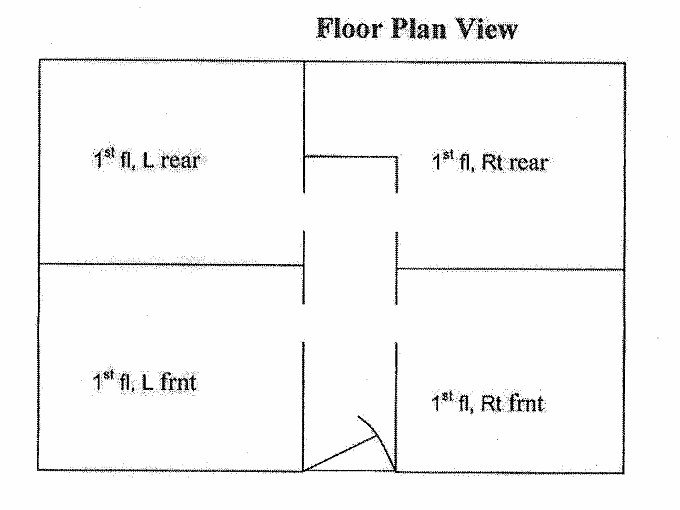

Front Door
Topic 3: Situations Involving Small Multi-Unit Buildings
Overview |
|
Some or all of the units in small multi-unit buildings may not have posted unit numbers or letters. For some of these places the Address List shows the basic address with an incorrect number of units or missing unit designations because the building has expanded to include more housing units. This topic provides rules for handling various types of situations. Please see Appendix 3 on page 18 for a diagram.
|
(Case 1)--The Address List shows only one unit for the address but you find evidence that more units exist at the address. |
|
If the Address List shows only one unit for the address but you find more units there:
If you cannot find anyone to confirm the units at the address, do your best to list them by observation, but be sure to follow the rules in Topic 4. For example, list the units as 1st fl left, 1st fl right, 2nd fl left, and 2nd fl right.
|
(Case 2)—There are multiple units on the Address List for the building, and you find multiple units there, but they do not have unit designations posted. |
|
If there is more than one unit shown on the Address List for the building, and you do find multiple units there, but they do not have unit designations posted:
If the respondent tells you that the address only has one unit, ask the reason for the additional mailboxes, doorbells or other signs of multiple units. Do not argue with the respondent. Do not delete any units from the Address List. Do not take any other action on these units. Explain the situation on an INFO-COMM. |
(Case 3)—There are multiple units on the Address List for the building, and you find multiple units there, but the unit designations posted on the building do not match the unit designations on the Address List. |
|
If there is more than one unit shown for the address on the Address List, and you find multiple units there, but the unit designations posted on the building do not match the unit designations on the Address List:
If the Address List shows more units than the respondent says exist at the address, do not delete any units from the Address List. Do not take any other action on these units.
If you are unable to confirm the unit designations at the address, list them and explain what you did on an INFO-COMM. |
(Case 4)—There are multiple units on the Address List for the building, but you find only one housing unit.
|
|
If there are multiple units on the Address List for the building, but you find only one housing unit there:
If the respondent confirms that the building has only one housing unit, and you do not see any evidence to suggest otherwise, explain the situation fully on an INFO-COMM. An office supervisor will resolve the situation with you.
|
Other Situations |
|
If you find any other situations in small multi-unit buildings that do not fall into one of the four cases discussed above, document the situation on an INFO-COMM and discuss it with your supervisor at your next daily meeting. |
|
|
Topic 4: Assigning Unit Designations To Adds |
Overview |
|
We must be able to clearly identify each housing unit at an address in order to mail it a 2010 Census questionnaire.
|
All The Units Have Posted Unit Designations |
|
If there are posted unit designations for all the housing units, you must use those identifiers to update the Address List. Use them even if they are out of order or non-consecutive. |
The Units Do Not All Have Posted Designations
|
|
If there are no posted unit designations for some or all of the units, rely on the respondent or your observation to identify the location of each housing unit in the building. Use the Unit Identifier field. Correct any unit designations that are incorrect on the Address List and add any that are missing. Use the standard abbreviations shown in Appendix 4 and in your Listers Manual.
|
Problem Situations |
|
If you are not sure how to handle a case, explain it on an INFO-COMM. Discuss it with your crew leader at your daily meeting. |
|
|
In this example, the Address List shows one unit at 18-186th Street, but when you get there you see four buzzers on the front door. The units do not have posted designations. All the units are on the same floor. The respondent says the units are located as shown below:
Apt. Owner’s Apt.
Apt.
Apt.
Front door List these housing units as “Frnt L ”, “Middle L”, “Rear L” and then “Frnt R” because you always list from left to right. Put the unit information into the Unit Identifier field on the Address List.
Front Door
Attic
1st Fl Apt 1st Fl Apt
Bsmt Apt Bsmt Apt
In this house, you would add the basement apartments (“Bsmt L, Bsmt R”) to the Address List. Then make sure the Address List correctly shows the designations for the units on the main floor (“1st Fl L, 1st Fl R”).
The goal is to clearly identify each housing unit so we can mail a 2010 Census questionnaire to each unit. We also need to be able to identify the units in case other Census Bureau staff need to visit the address in the future.
IMPORTANT: In situations where there are no posted unit designations, always enter the unit information in the unit identifier field as described in Table 5-4 of your Address Canvassing Listers Manual.
If you think you have found a place that qualifies as an “Other Living Quarters”, explain the situation on an INFO-COMM and discuss it with your supervisor before taking any action in regards to the place.
|
Appendix 1. D-31, Confidentiality Notice
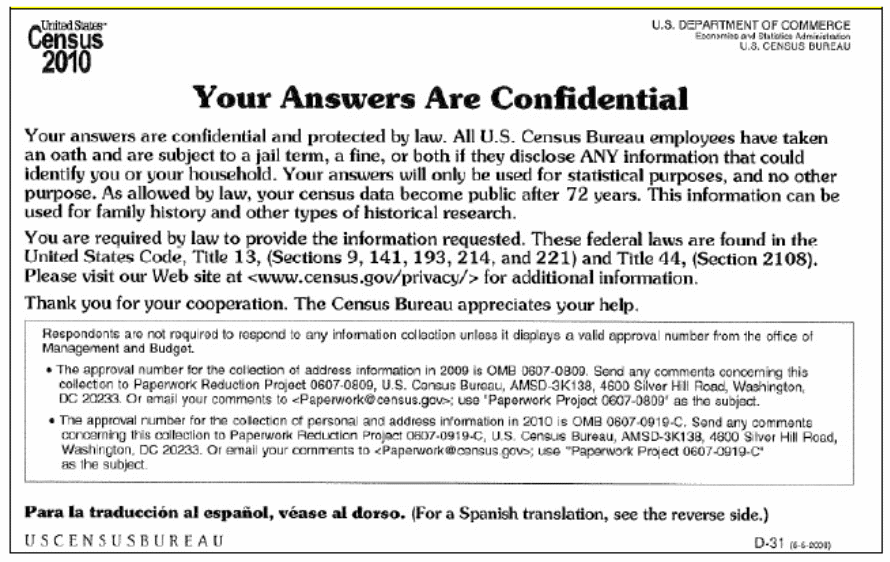
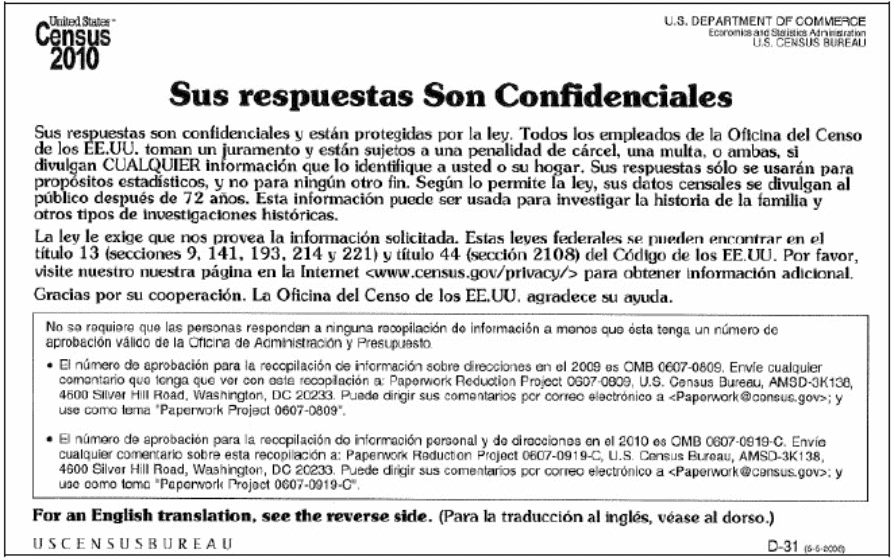
Appendix 2. Illustrations of Small Multi-Units
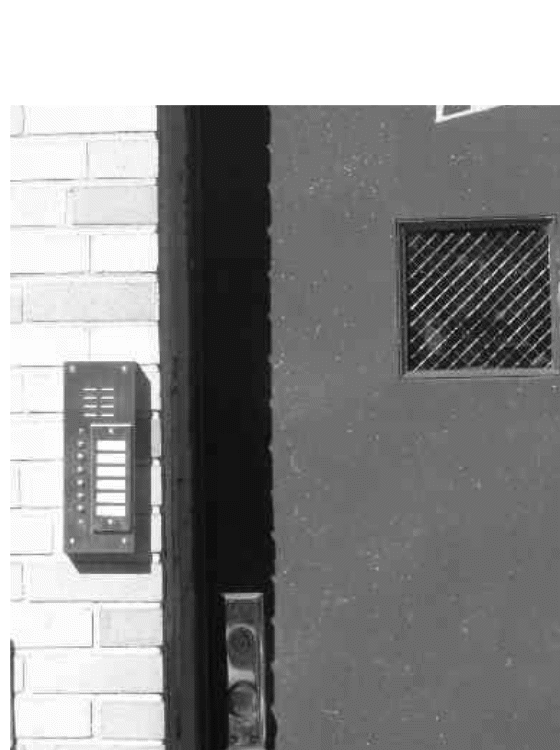

Figure 1. This building has multiple door buzzers with names, but no unit designations.
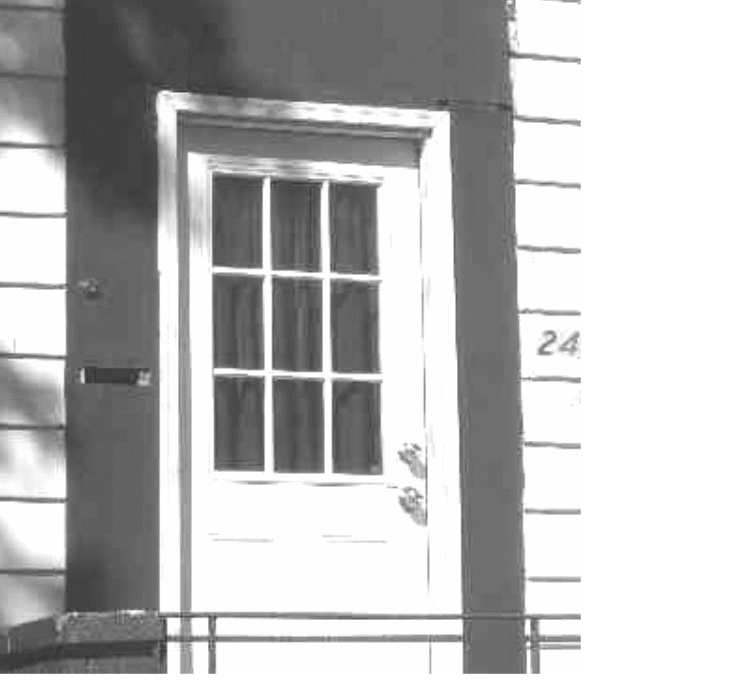


Figure 2. This house has two house numbers (not shown), but only one mail slot and one doorbell.
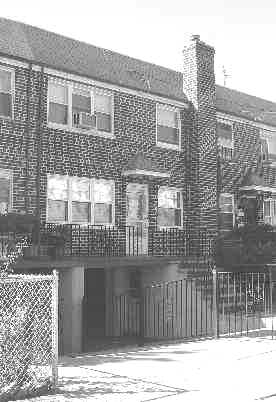

Figure 3. Railing leads to a basement apartment that may have been a garage at one time.
Figure 4. This store has a side door leading to an apartment and indications of possible housing units above the store.


Figure 5. The fire escapes suggest several housing units. There are also signs of basement apartments.
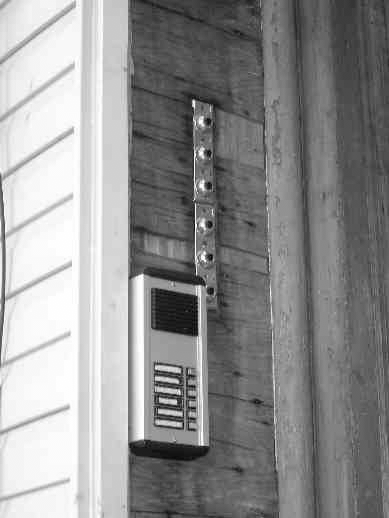

Figure 6. This is a house with a set of old doorbells and a set of new doorbells. There could be 6 units here or 12 units here, so you need to inquire to confirm the number of housing units. Always inquire about any building with two sets of doorbells.
Appendix 3. Diagram of Various Situations
This chart shows the general procedures for handling various situations you might encounter at small multi-unit buildings. Refer to Topic 3 for the detailed procedures. This diagram only provides a general overview. Follow the detailed procedures in Topic 3 on page 9 for each small multi-unit situation.

Appendix 4. Standard Abbreviations
For a full list refer to Appendix B in your Lister’s Manual.
Attic -- Atc
Basement -- Bsmt
Building -- Bldg
Downstairs -- Dwnstr
Floor -- Fl
Front -- Frnt
Garage -- Grg
House -- Hse
Left -- L
Lower -- Lowr
Penthouse -- PH
Porch -- Prch
Right -- R
Room Rm
Suite -- Ste
Trailer (mobile home) -- Trlr
Upper -- Uppr
Appendix 5. Practice Exercises
You will use the illustrations below during your classroom lesson.
Exercise 1.
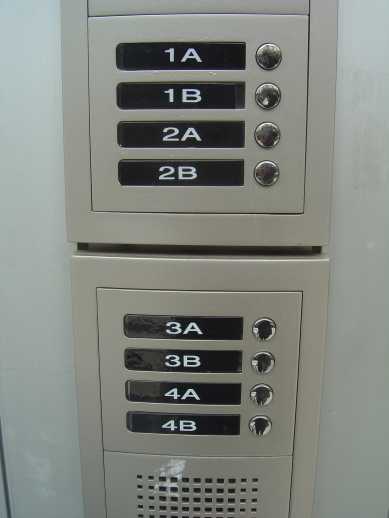
Exercise 2.
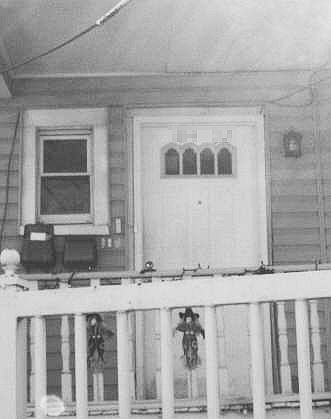
NOTES
January 2009
| File Type | application/msword |
| File Title | Chapter 1: Introduction |
| Author | TMO |
| Last Modified By | Bureau Of The Census |
| File Modified | 2009-02-23 |
| File Created | 2009-02-23 |
© 2026 OMB.report | Privacy Policy


